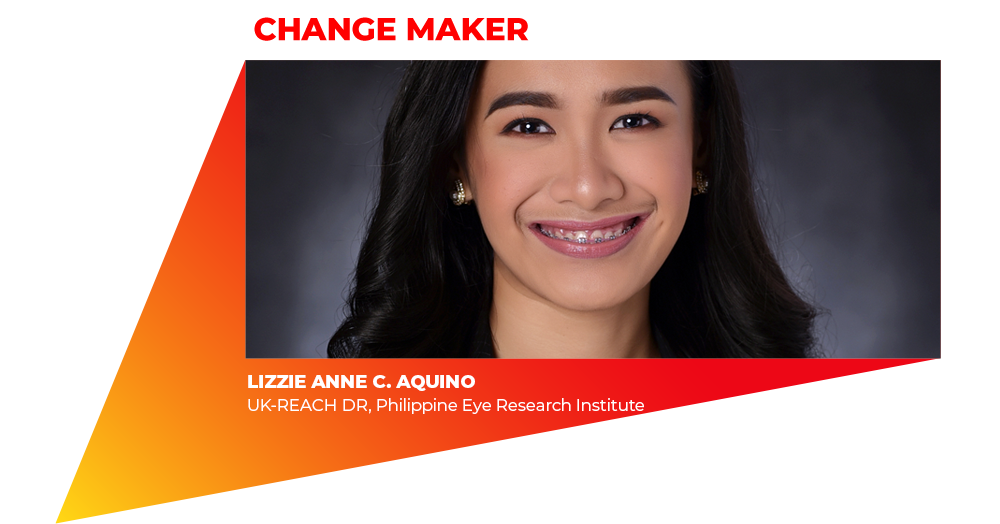Join a powerful, unprecedented alliance for better eye health for all.
Join IAPB-
Choose an alternate language here

23-year old Lizzie Anne Aquino began her journey in the Eye health sector just a few years ago. As someone who is deeply committed to her work, she showed strong commitment and enthusiasm even if the whole experience was new to her.
Right after graduating with a degree in Biology, she passionately embraced her job as a Science Research Specialist in the Philippine Eye Research Institute (PERI), the center of eye research in the Philippines. In preparation for her work in the eye health sector, she obtained the Certificate of Higher Education in Diabetic Retinopathy Screening and Optical Coherence Tomography (OCT) in Digital Surveillance from the Gloucestershire Retinal Education Group. She is also adept and highly flexible in the use of handheld fundus cameras, a result of months of training and a year of doing validation studies in preparation for the diabetic retinopathy screening in remote communities in the Philippines.
In the Philippines, diabetic retinopathy is one of the leading causes of visual loss and blindness among people with diabetes. Screening for the disease can help prevent visual loss. However, due to the lack of access to medical facilities worsened by geographic, social, and cultural constraints, in-person retinal evaluation in the country is not always possible. Researchers from the Philippine Eye Research Institute are currently working with Queen’s University of Belfast of the United Kingdom on the UK-Philippines Remote Retinal Evaluation Collaboration in Health: Diabetic Retinopathy (REACH-DR), a project jointly funded by the Newton Fund and the Philippine Council for Health Research and Development.
Lizzie Aquino was part of the team that seeks to establish a local Diabetic Retinopathy Screening Programme in the country which will help in the timely diagnosis of eyes at risk for diabetes-related blindness and visual loss. As of October 2021, the team has already screened over a thousand diabetic patients from over 70 barrios or villages in the country. Together with the team, she has worked tirelessly in making eye healthcare service accessible to the Filipino people living in underserved communities.
Most notably, she contributed to the first successful use of a validated artificial intelligence (AI) algorithm in the clinical setting for ophthalmology in the Philippines. In September 21, 2021, Lizzie Aquino and her team was able to successfully perform and complete diabetic retinopathy screening with the use of AI to identify diabetic retinopathy and vision-threatening retinal disease. This is a landmark moment for the Philippines and one step closer to a timely and accurate detection of diabetic retinopathy.
Lizzie Aquino undoubtedly embodies the qualities of a change-maker and is a rising star in our organization. She is highly proactive, has a strong sense of responsibility and dedicated to improving the overall level of eye healthcare in the Philippines. She is always ready to voice out her ideas and turn them into action. Through her efforts, commitment and strong leadership skills, she has contributed to ensuring that Filipinos with diabetes have the opportunity to save their eyesight through timely yet accurate and cost-effective diabetic retinopathy detection.
“It has only been three years since I started working in the Eye health sector but the experience so far has been very promising and fulfilling. What I love the most about my role is community involvement and the positive impact we make. Working in this field is an eye-opener which helped me realize the huge demand for cost-efficient and accessible healthcare especially in my country, the Philippines. Through the guidance and leadership of Dr. Paolo Silva and partnerships with likeminded collaborators, I strongly believe that providing eye healthcare especially to the underserved population and preventing vision loss due to diabetes are highly achievable!”
– Lizzie Anne C. Aquino